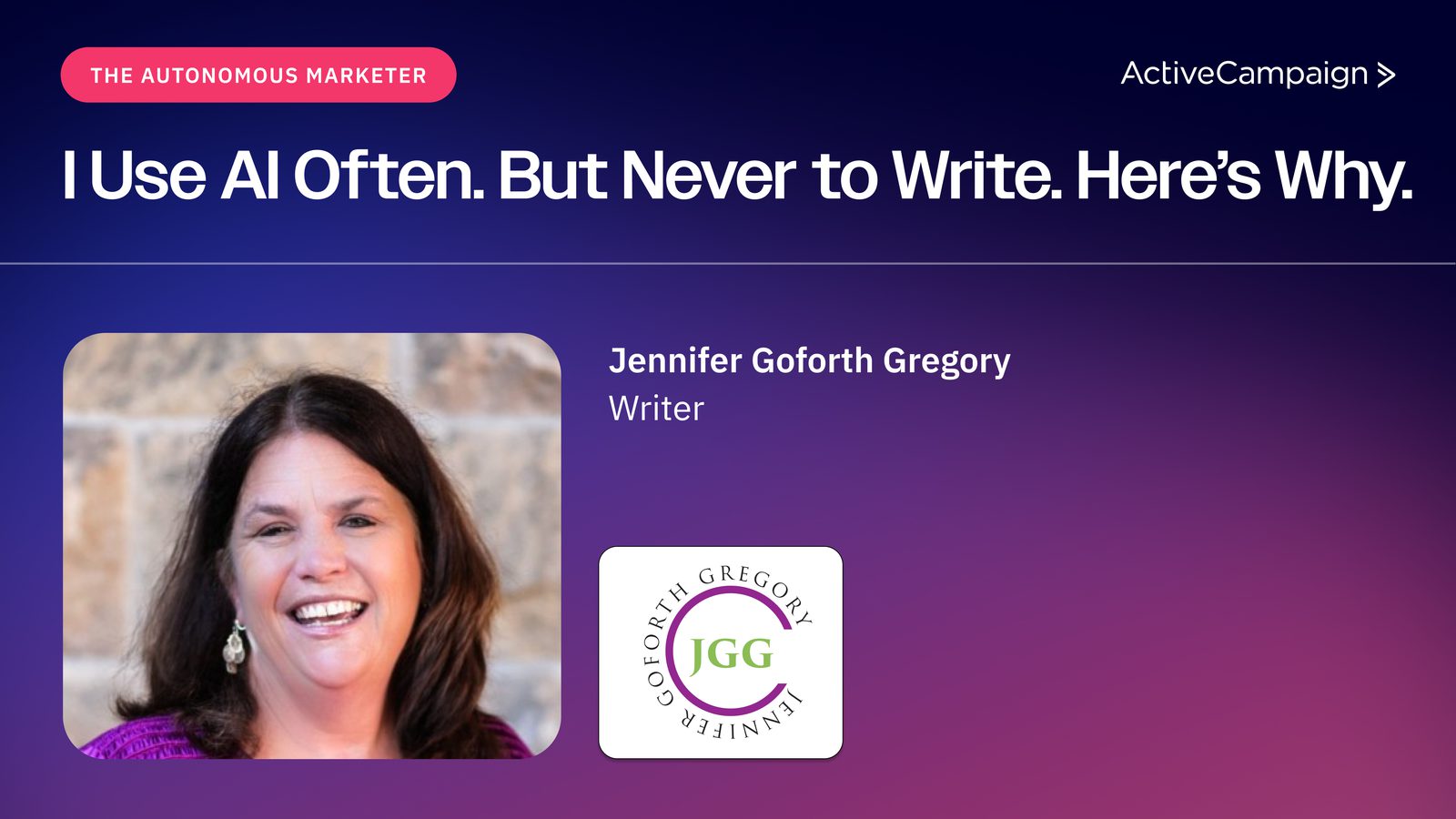Small businesses have an abundance of software options at their disposal to help their teams streamline operations, enhance productivity, and propel growth. Choosing the right software can be a game-changer, but with so many choices available, it can be overwhelming to know which tools will work best for your business.
In this article, we’ll delve into the best small business software options of the year. Whether you're seeking solutions for project management, customer relationship management (CRM), email marketing, or accounting, we've got you covered.
These are the top software tools that can empower your business and help you feel confident about the decisions you make to fuel your success.
What is small business software?
Small business software refers to a collection of digital tools and applications specifically designed to assist small businesses in managing their operations, automating tasks, and optimizing their overall efficiency. These software solutions are developed to address the unique needs and challenges faced by small businesses, offering functionalities that streamline processes and enhance productivity.
Taking a look at Software Oasis, you can see that small business software can encompass a wide range of applications, including project management tools, customer relationship management (CRM) systems, accounting software, inventory management systems, marketing automation platforms, and more.
These software applications are typically cloud-based, allowing businesses to access and utilize them remotely through the internet, eliminating the need for complex on-premise installations.
When it comes to usage, small business software is employed across various aspects of business operations. It allows businesses to automate repetitive tasks, centralize and organize data, track performance metrics, streamline communication and collaboration, manage customer relationships, handle accounting and financial transactions, and execute marketing campaigns.
By leveraging small business software, companies can save time, reduce manual errors, improve decision-making, enhance customer experiences, and ultimately drive growth and profitability.
What are the benefits of small business software?
Small business software offers numerous benefits that can significantly impact the success and growth of a small business.
Here are some key advantages:
- Increased efficiency: Small business software automates repetitive tasks, such as data entry, invoicing, and inventory management, reducing the time and effort required for manual processes. This efficiency boost allows employees to focus on higher-value activities, resulting in improved productivity and overall business performance.
- Enhanced organization: Software applications provide centralized data storage and organization, enabling easy access to critical information whenever needed. This streamlined data management and business password manager ensures that important files, customer records, and financial data are secure, searchable, and readily available, saving time and eliminating the risk of misplaced or lost documents.
- Improved decision-making: Small business software provides real-time insights and analytics, allowing business owners to make data-driven decisions. With access to key performance indicators, sales trends, and customer behavior patterns, businesses can identify opportunities, mitigate risks, and optimize strategies for better outcomes.
- Streamlined collaboration: Collaborative features within small business software facilitate seamless communication and collaboration among team members, whether they are in the same office or working remotely. Features like shared calendars, document sharing, and task assignment enhance teamwork, boost productivity, and foster efficient project management.
- Scalability and growth: Small business software is designed to scale with the business, accommodating increased workloads, growing customer bases, and expanding operations. As the business expands, the software can handle larger data volumes, support more users, and offer additional features and integrations, ensuring long-term viability and adaptability.
- Cost savings: While there may be upfront costs associated with implementing small business software, the long-term benefits often outweigh the investment. Automation reduces labor costs, while centralized data management minimizes the risk of errors and redundant tasks. Additionally, the software eliminates the need for physical storage space, paper-based documentation, and manual record-keeping, resulting in significant cost savings over time.
How to choose the best small business software
When choosing the right small business software for your business, several primary considerations should be taken into account. These factors will help ensure that the software aligns with your specific needs and contributes to the success of your business.
Here are some key considerations to keep in mind:
- Functionality: Evaluate the software's features and functionalities to determine if they address your business requirements. Consider the core functionalities you need, such as accounting, project management, customer relationship management (CRM), inventory management, or marketing automation. Look for software that offers a comprehensive suite of tools or integrations that can support your business processes effectively.
- Scalability: Consider your business's growth potential and select software that can scale alongside your evolving needs. Ensure that the software can accommodate an increasing number of users, handle larger data volumes, and support additional features and integrations. Scalability is crucial to avoid outgrowing the software quickly and having to undergo the time-consuming and costly process of transitioning to a new system.
- Ease of use: Choose software that is intuitive and user-friendly, even for non-technical users. The software should have a clean and organized interface, clear navigation, and well-documented support resources. Training and onboarding should be straightforward to minimize the learning curve for your team and maximize adoption across the organization.
- Integration capabilities: Consider the software's ability to integrate with other essential tools and systems your business relies on. Look for software that offers seamless integration with popular applications like accounting software, CRM systems, payment gateways, and e-commerce platforms. Integration capabilities allow for smooth data flow across different platforms, streamlining processes and avoiding data silos.
- Support and security: Assess the level of support provided by the software vendor, including access to technical support, user communities, and online resources. Additionally, prioritize the security features offered by the software, such as data encryption, user access controls, and regular software updates. Protecting your business data and ensuring compliance with privacy regulations is crucial for maintaining the integrity and trustworthiness of your operations.
The best small business software for 2024
There are many small business software options on the market. These are our picks for 2024.
ActiveCampaign
G2 Rank: 4.5/5 stars
ActiveCampaign is widely recognized as one of the best small business software solutions available today. Its comprehensive features and user-friendly interface make it a top choice for businesses looking to streamline their operations and enhance customer engagement.
The functionality that makes ActiveCampaign stand out includes:
- Powerful automation: ActiveCampaign offers robust automation capabilities that allow small businesses to automate their marketing, sales, and customer service processes. With its visual automation builder, users can create personalized customer journeys, send targeted emails based on specific actions or triggers, and efficiently nurture leads throughout the sales funnel.
- Advanced email marketing: The software provides an extensive range of email marketing tools, enabling businesses to create visually appealing and personalized email campaigns. From customizable templates to dynamic content and A/B testing, ActiveCampaign helps optimize email marketing efforts for maximum engagement and conversions.
- CRM functionality: ActiveCampaign's integrated CRM system empowers businesses to effectively manage their customer relationships. It provides a centralized database to store contact information, track interactions, and gain valuable insights into customer behavior. CRM functionality enables businesses to create tailored experiences, improve customer satisfaction, and drive long-term loyalty.
- Multichannel marketing: ActiveCampaign goes beyond email marketing and supports various other marketing channels, including SMS marketing, social media advertising, and live chat. This multi-channel approach allows businesses to reach customers through their preferred channels, increasing the chances of engagement and conversions.
ActiveCampaign primarily caters to small businesses that want to automate their marketing, sales, and customer service processes while maintaining a high level of personalization. It’s particularly suitable for businesses that value advanced automation capabilities, integrated CRM functionality, and a comprehensive set of marketing tools.
ActiveCampaign's versatility and scalability make it an excellent choice for businesses across industries, ranging from e-commerce and professional services to non-profit organizations and educational institutions.
What languages does ActiveCampaignsupport?
ActiveCampaign fully supports 14 different languages outside of English. Some of these languages include Portuguese, Spanish, Italian, German, French, and Polish.
ActiveCampaign also partially supports Danish, Finnish, Simplified Chinese, Turkish, and Vietnamese.
Which currencies does ActiveCampaign accept?
ActiveCampaign supports the US Dollar (USD), Euro (EUR), and Brazilian Real (BRL).
What is the entry-level pricing for ActiveCampaign?
ActiveCampaign’s entry-level pricing starts at $15/month. With the Starter plan, you get multi-step automation, email sends 10x your contact limit, site and event tracking, basic reporting and analytics, access to 900+ integrations, A/B testing, hundreds of beautifully designed email templates, and more.
Plus, no matter what plan you choose, you’ll enjoy features like:
- Accelerated onboarding
- Contact migration
- Chat and ticket support
- Customer enablement workshops
- And video tutorials
Find all plans on the ActiveCampaign pricing page.
Quickbooks
G2 Rank: 4/5 stars
QuickBooks provides comprehensive financial management tools that help businesses streamline their accounting processes and gain valuable insights into their financial health.
Here are some reasons why QuickBooks stands out:
- Simplified accounting: QuickBooks offers an intuitive and user-friendly interface, making it easy for small businesses to manage their finances. It enables users to track income and expenses, create and send invoices, manage payroll, and reconcile bank transactions. With its automated features, small businesses can save time and ensure accurate financial records.
- Robust reporting and analytics: The software provides a range of reporting and analytics features that help businesses monitor their financial performance and make informed decisions. QuickBooks generates detailed financial reports, such as profit and loss statements, cash flow statements, and balance sheets. It also offers customizable dashboards and real-time data, enabling small business owners to track key metrics and gain insights into their business's financial health.
- Integration with third-party apps: QuickBooks integrates seamlessly with a wide range of third-party applications, including payment processors, e-commerce platforms, and customer relationship management (CRM) software. This integration allows businesses to streamline their operations by syncing data across different systems, improving efficiency and eliminating manual data entry.
- Scalability and versatility: QuickBooks caters to a wide range of industries and business sizes. Whether you're a freelancer, a small startup, or a growing enterprise, QuickBooks offers various versions and pricing plans to accommodate your needs. Its scalability ensures that businesses can continue using QuickBooks as they expand and require more advanced features.
QuickBooks primarily caters to small businesses that require powerful accounting and financial management software. It’s best suited for entrepreneurs, freelancers, and small business owners who want to streamline their financial processes, track expenses, and generate accurate financial reports.
What languages does Quickbookssupport?
Quickbooks supports multiple languages including English, Chinese, French, Italian, Spanish, Arabic, Thai, Portuguese, German, Japanese, and Korean.
You’re able to change the language in QuickBooks Online using the language settings of the browser.
What currencies does Quickbooks accept?
Quickbooks accepts a long list of currencies including but not limited to the US Dollar (USD), Mexican Peso (MXN), Australian Dollar (AUD), Nepalese Rupee (NPR), Polish Zloty (PLN), Bitcoin, Swedish Krona (SEK), and more.
What is the entry-level pricing for Quickbooks?
The entry-level pricing for Quickbooks starts at $9 a month and gives you access to features like income and expenses, invoices and payments, tax deductions, general reports, receipt capture, and more.
See all plans and pricing on the Quickbooks pricing page.
Does Quickbooks integrate with ActiveCampaign?
Yes. When you integrate Quickbooks with ActiveCampaign, you’ll be able to add new contacts from QuickBooks online into the ActiveCampaign list of your choice. The integration gives you the power to track and manage your vendors while keeping your invoices, estimates, and checks organized.
For more details, please visit the ActiveCampaign and Quickbooks integration page.
Slack
G2 Rank: 4.5/5 stars
Slack has earned its reputation as one of the best small business software solutions due to its exceptional collaboration and communication features. It serves as a centralized hub for team communication, enabling small businesses to stay connected, organized, and productive.
Here are some reasons why Slack stands out:
- Real-time messaging: Slack offers a real-time messaging platform that allows teams to communicate and collaborate seamlessly. With its intuitive interface and instant messaging capabilities, team members can exchange messages, share files, and collaborate on projects in real time. This feature promotes efficient communication and reduces the need for lengthy email threads or scattered communication channels.
- Channel-based organization: Slack's channel-based organization system allows businesses to create dedicated spaces for different teams, projects, or topics. This structure ensures that conversations and files are organized, easily searchable, and accessible to the relevant team members. Channels can be public or private, providing flexibility and control over the level of visibility and collaboration within the organization.
- Integration with third-party apps: Slack integrates with a wide range of third-party applications, including project management tools, file-sharing platforms, and customer support systems. This integration streamlines workflows by connecting various tools and services into one centralized platform. It allows small businesses to consolidate their work processes, access information from multiple sources, and automate routine tasks.
- Collaboration features: Slack offers numerous collaboration features, such as threaded conversations, file sharing, screen sharing, and video conferencing. These features foster effective teamwork, enabling small businesses to collaborate remotely, exchange ideas, and make decisions collectively. With Slack, team members can work together seamlessly, regardless of their physical location or time zone.
Slack primarily caters to small businesses and teams that require efficient and streamlined communication and collaboration. It’s a great tool for remote or distributed teams and provides the necessary tools to facilitate efficient collaboration and boost productivity within small businesses.
What languages does Slack support?
Slack supports a list of languages including Chinese (Simplified or Traditional), English (U.S. or U.K.), French (France), German (Germany), Italian, Japanese, Korean, Portuguese (Brazil), Russian, and Spanish (Latin America or Spain).
What currencies does Slack accept?
Slack offers pricing and billing for the following currencies:
- US Dollars (USD)
- British Pounds (GBP)
- Euros (EUR)
- Indian Rupee (INR)
- Japanese Yen (JPY)
What is the entry-level pricing for Slack?
Slack’s entry-level pricing plan Pro starts at $7.25 per person per month when billed yearly. Users will have access to all the benefits of their free plan plus features like unlimited message history, unlimited apps and integrations, unlimited lightweight, and voice-first huddles.
See all pricing plans on the Slack pricing page.
Does Slack integrate with ActiveCampaign?
Yes. When you integrate Slack with ActiveCampaign, you’ll be able to bring sales, marketing, and support together by combining real-time Slack alerts and ActiveCampaign’s customer experience automation (CXA) platform.
For more details, please visit the ActiveCampaign and Slack integration page.
Google Workspace
G2 Rank: 4.6/5 stars
Google Workspace, formerly known as G Suite, is widely regarded as one of the best small business software solutions available. It offers a comprehensive suite of productivity and collaboration tools designed to enhance efficiency and streamline business operations.
Here are some reasons why Google Workspace is highly recommended for small businesses:
- Cloud-based collaboration: Google Workspace provides cloud-based applications like Google Docs, Sheets, and Slides, allowing teams to collaborate on documents in real time. Multiple users can work on the same file simultaneously, making it easy to share ideas, provide feedback, and track changes. This feature promotes seamless collaboration and eliminates version control issues that can arise with traditional file-sharing methods.
- Gmail integration: With Google Workspace, businesses can use custom email addresses with their domain name through Gmail. This professional email service includes robust features like advanced spam filtering, large storage capacity, and powerful search capabilities. It provides a secure and reliable platform for small businesses to manage their email communication efficiently.
- Centralized communication: Google Workspace offers integrated communication tools such as Google Meet and Google Chat. These tools enable teams to conduct video conferences, voice calls, and instant messaging within the same platform. Small businesses can connect with clients, partners, and remote team members easily, fostering effective communication and collaboration.
- Extensive app ecosystem: Google Workspace integrates seamlessly with various third-party applications through the Google Marketplace. This allows businesses to customize their productivity suite and enhance their workflow with specialized tools. From project management and CRM to marketing automation and customer support, small businesses can leverage the vast ecosystem of apps to meet their specific needs.
Google Workspace caters to businesses and teams that value collaboration, productivity, and cloud-based solutions. It excels with its seamless collaboration on documents, reliable email services, and integrated communication tools.
What languages does Google Workspace support?
Google Workspace supports a list of languages including but not limited to English, Arabic, Chine (traditional and simplified), Polish, Korean, Swedish, Thai, Hindi, Spanish, Italian, Japanese, Russian, and more.
See the full list of supported languages here.
What currencies does Google Workspace accept?
Google Workspace accepts a wide range of currencies. To see which currencies are accepted in each country, see this page for a drop-down list.
What is the entry-level pricing for Google Workspace?
Google Workspace offers their Business Starter plan for $6 per user/month with one year of commitment. This entry-level plan will give users access to a custom and secure business email, 100 participant video meetings, 30 GB storage per user, security and management controls, and standard level support.
Find all pricing plans on the Google Workspace pricing page.
Does Google Workspace integrate with ActiveCampaign?
You can integrate multiple Google Workspace products with ActiveCampaign including Google Sheets, Google Analytics, Google Calendar, Google Forms, Google Docs, Google Drive, Google Ads, Google My Business, Google Hangouts Chat, Google Tasks, and Google Contacts.
See all Google Workspace products that integrate with ActiveCampaign on our integrations page.
Asana
G2 Rank: 4.3/5 stars
Asana is recognized as one of the top small business software solutions, offering a powerful platform for project management and team collaboration. It helps businesses organize their tasks and streamline their project workflows.
Here are some key reasons why Asana stands out as an excellent choice for small businesses:
- Intuitive task management: Asana provides a user-friendly interface that allows businesses to create, assign, and track tasks effortlessly. It offers features like task deadlines, priority settings, and progress tracking, enabling teams to stay organized and focused on their goals. With customizable project boards and task lists, businesses can tailor Asana to their specific needs and workflows.
- Seamless team collaboration: Asana facilitates seamless collaboration among team members, whether they are working in the same office or remotely. It allows users to comment on tasks, tag colleagues, and attach files, promoting clear communication and eliminating the need for scattered email threads. The real-time updates ensure that everyone stays informed and aligned on project progress.
- Project visualization: One of Asana's standout features is its ability to visualize projects and workflows. It offers interactive Gantt charts and timeline views that provide a clear overview of project schedules, dependencies, and milestones. This visual representation helps businesses identify bottlenecks, allocate resources effectively, and ensure projects are delivered on time.
- Integration capabilities: Asana seamlessly integrates with various other tools and software, such as Google Drive, Slack, and Salesforce, enhancing its functionality and adaptability. This integration capability enables small businesses to connect their favorite applications and streamline their workflows even further.
Asana primarily caters to small businesses and teams that require effective task management and project visualization. The tool provides the necessary functionality to plan, execute, and track projects efficiently no matter if you’re a marketing team, a software development group, or a creative agency. With an intuitive interface and a long list of integrations, it’s a valuable asset for small businesses seeking to improve productivity and project success.
What languages does Asana support?
Asana is currently available in English, Traditional Chinese, Russian, Dutch, Polish, Italian, Swedish, Korean, French, German, Portuguese, Spanish, and Japanese.
What currencies does Asana accept?
Asana accepts the US Dollar (USD), Euro (EUR), Japanese Yen (JPY), Great British Pound (GBP), Canadian Dollar (CAN), and Australian Dollar (AUS).
What is the entry-level pricing for Asana?
Asana’s Premium plan is their entry-level plan and starts at $10.99 per user, per month billed annually. You’ll have access to functionality like projects, tasks, activity logs, storage, and comments, a four-project view with list, board, calendar, and timeline views, automated workflows, reporting, no user limit, unlimited free guests, and personalized community support.
See full details and pricing plans on the Asana pricing page.
Does Asana integrate with ActiveCampaign?
Yes. By integrating Asana with ActiveCampaign, you’ll align and sync your team's contacts and deal activity, build powerful automations, enable your sales team, and track their collaboration in real time.
For more details, please visit the ActiveCampaign and Asana integration page.
Mailchimp
G2 Rank: 4.4/5 stars
Mailchimp is one of the top small business software solutions, offering an all-in-one platform for email marketing and customer relationship management (CRM). It provides small businesses with the necessary tools to effectively engage with their audience and grow their customer base.
Here are some key reasons why Mailchimp is a popular option:
- Email marketing expertise: Mailchimp excels in email marketing, allowing businesses to create professional, visually appealing email campaigns with ease. It offers a user-friendly drag-and-drop editor, customizable templates, and robust automation features. With Mailchimp, businesses can segment their audience, personalize emails, and track campaign performance to optimize engagement and conversions.
- CRM integration: In addition to email marketing, Mailchimp offers CRM functionality to help businesses manage and nurture customer relationships. It allows for the centralization of customer data, including contact information, purchase history, and engagement metrics. This enables small businesses to gain valuable insights, personalize communications, and deliver targeted marketing campaigns.
- E-commerce features: Mailchimp provides seamless integration with popular e-commerce platforms, allowing small businesses to connect their online stores and automate email marketing for product recommendations, abandoned cart reminders, and customer follow-ups. This feature is particularly beneficial for small businesses selling products online.
- Analytics and reporting: Mailchimp offers robust analytics and reporting capabilities, providing businesses with valuable insights into their email marketing performance. It tracks key metrics such as open rates, click-through rates, and conversion rates, allowing businesses to measure the success of their campaigns and make data-driven decisions to optimize their marketing efforts.
Mailchimp is used by many small businesses and entrepreneurs who want to establish a strong online presence, engage with their audience through effective email marketing, and grow their customer base. Because of its user-friendly interface and comprehensive features, it’s a top choice for small businesses looking to drive marketing success.
What languages does Mailchimp support?
Mailchimp provides services in up to 50 languages including English, Spanish, French, Portuguese, German, and Italian.
For more information, see Mailchimp’s language settings and preferences page.
What currencies does Mailchimpaccept?
Mailchimp accepts payments in multiple currencies, including but not limited to:
- US Dollar (USD)
- Euro (EUR)
- British Pound Sterling (GBP)
- Australian Dollar (AUD)
- Indian Rupee (INR)
- New Zealand Dollar (NZD)
- Brazilian Real (BRL)
What is the entry-level pricing for Mailchimp?
Mailchimp offers a range of pricing plans, including a free plan and multiple paid plans. Their entry-level plan is called “Essentials” and starts at $13 a month with up to 5,000 email sends per month.
This plan includes the following features:
- 3 seats
- 24/7 email and chat support
- Assisted onboarding
- Behavioral targeting
- 100+ pre-built email templates
- Custom branding
- Automations and signup forms
- A/B testing and more
Visit Mailchimp’s pricing page for more details and up-to-date information.
Does Mailchimp integrate with ActiveCampaign?
Although Mailchimp does not integrate with ActiveCampaign, ActiveCampaign offers free migration services. Click here to learn more.
Zoho CRM
G2 Rank: 4/5 stars
Zoho CRM is a software solution created for managing customer relationships and streamlining sales processes. With its user-friendly interface and comprehensive features, Zoho CRM offers small businesses the tools they need to effectively track leads, close deals, and deliver exceptional customer experiences.
Here are some key reasons why Zoho CRM stands out:
- Lead and contact management: Zoho CRM provides a centralized database for managing leads and contacts, allowing businesses to capture and organize customer information effectively. It offers features like lead scoring, lead assignment, and contact segmentation, enabling businesses to prioritize and nurture their leads for improved conversion rates.
- Sales automation: With Zoho CRM, small businesses can automate their sales processes, saving time and improving efficiency. The software offers features such as workflow automation, sales pipeline management, and automated email campaigns. These automation capabilities help businesses streamline their sales activities, reduce manual tasks, and improve overall productivity.
- Analytics and reporting: Zoho CRM offers robust analytics and reporting features that provide businesses with insights into their sales performance. It tracks key metrics like revenue, conversion rates, and sales cycle length, allowing businesses to analyze their sales data and make informed decisions to optimize their sales strategies.
- Integration capabilities: Zoho CRM seamlessly integrates with a wide range of third-party applications, allowing small businesses to leverage additional functionalities and create a unified business ecosystem. Integration with tools like email marketing software, accounting software, and customer support platforms enables businesses to streamline their operations and enhance their overall customer experience.
Zoho CRM primarily caters to small businesses across various industries, including B2B and B2C. It is ideal for sales teams, marketers, and customer service professionals who need a comprehensive CRM solution to manage leads, track sales activities, and deliver personalized customer experiences.
What languages does Zoho CRM support?
Zoho CRM supports 17 different languages including Chinese, Danish, French, Portuguese (Brazil), Portuguese (Europe), Dutch, German, Swedish, Russian, Spanish, Italian, Japanese, English, Czech, Turkish, Polish, and Korean.
What currencies does Zoho CRM accept?
Zoho CRM accepts a wide range of currencies including but not limited to the US Dollar (USD), Swiss Franc (CHF), Euro (EUR), Indian Rupee (INR), Korean Won (KRW), Mexican Peso (MXN), Australian Dollar (AUS), Swedish Krona (SEK), and more.
For an up-to-date list of accepted currencies, see this page.
What is the entry-level pricing for Zoho CRM?
Zoho CRM’s entry-level plan starts at $14 per user/month billed annually. It’s aimed at businesses looking to automate and optimize their sales cycle and gives access to a variety of features including sales forecasting, email insights, multiple pipelines, tasks, calls, and events, advanced filters, and scoring rules.
See full pricing plan details on the Zoho CRM pricing page.
Does Zoho CRM integrate with ActiveCampaign?
Yes. With the ActiveCampaign extension for Zoho CRM, you can sync users, choose fields to be synced, and track your contacts' campaign activity all from within Zoho CRM.
For more details, please visit the ActiveCampaign and Zoho CRM integration page.









